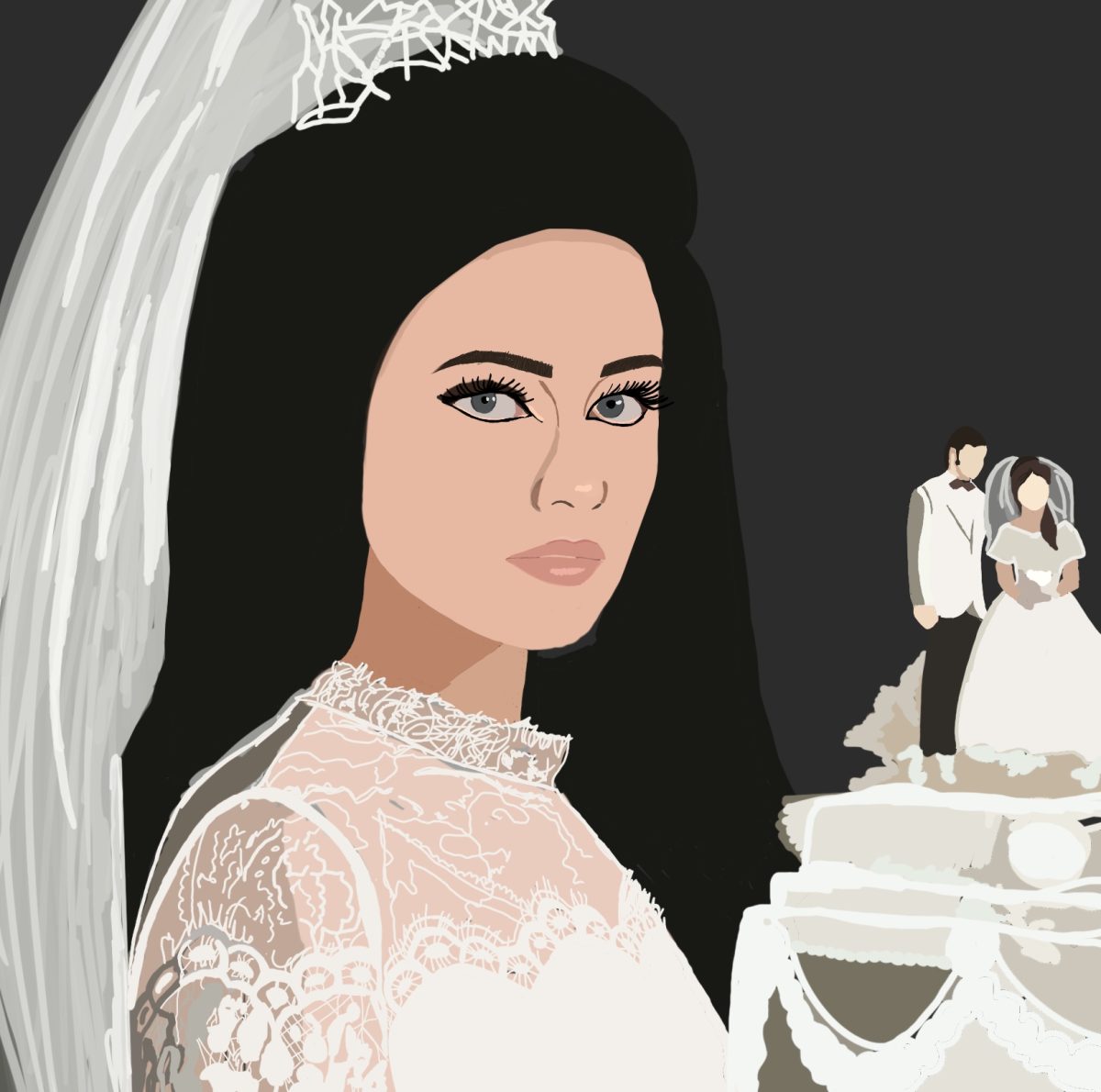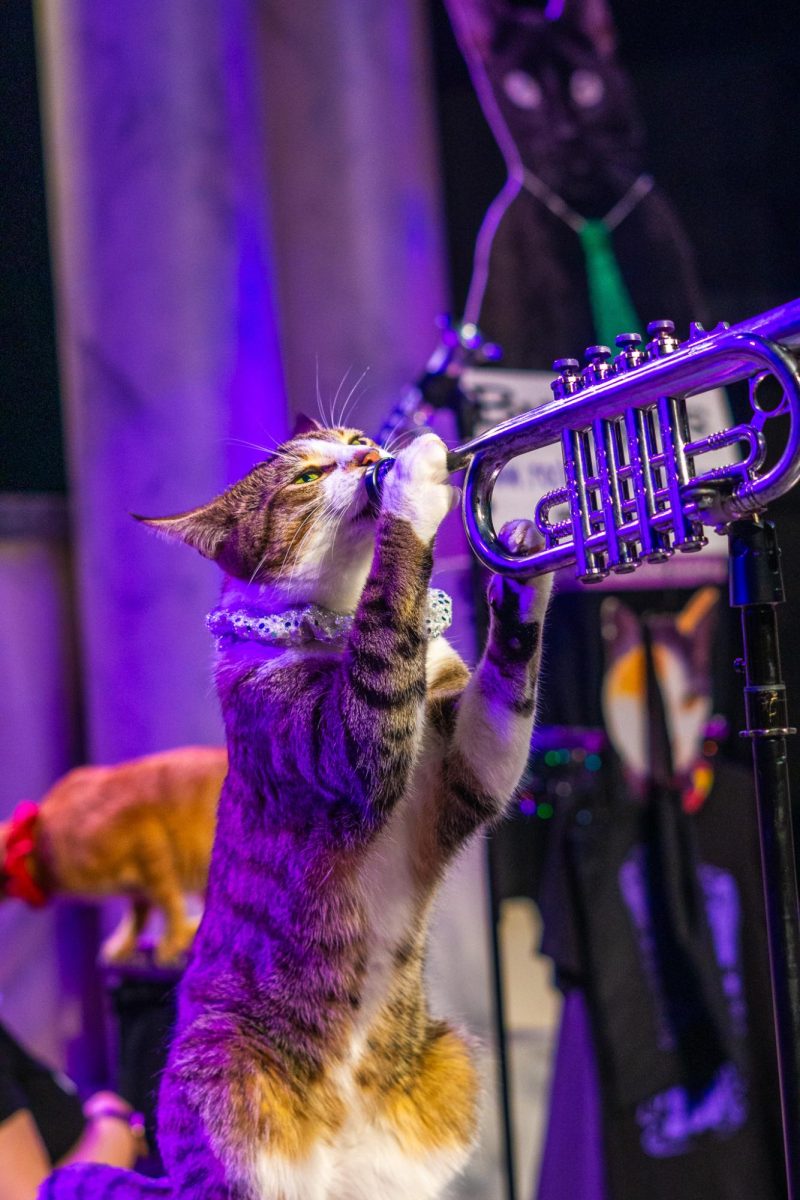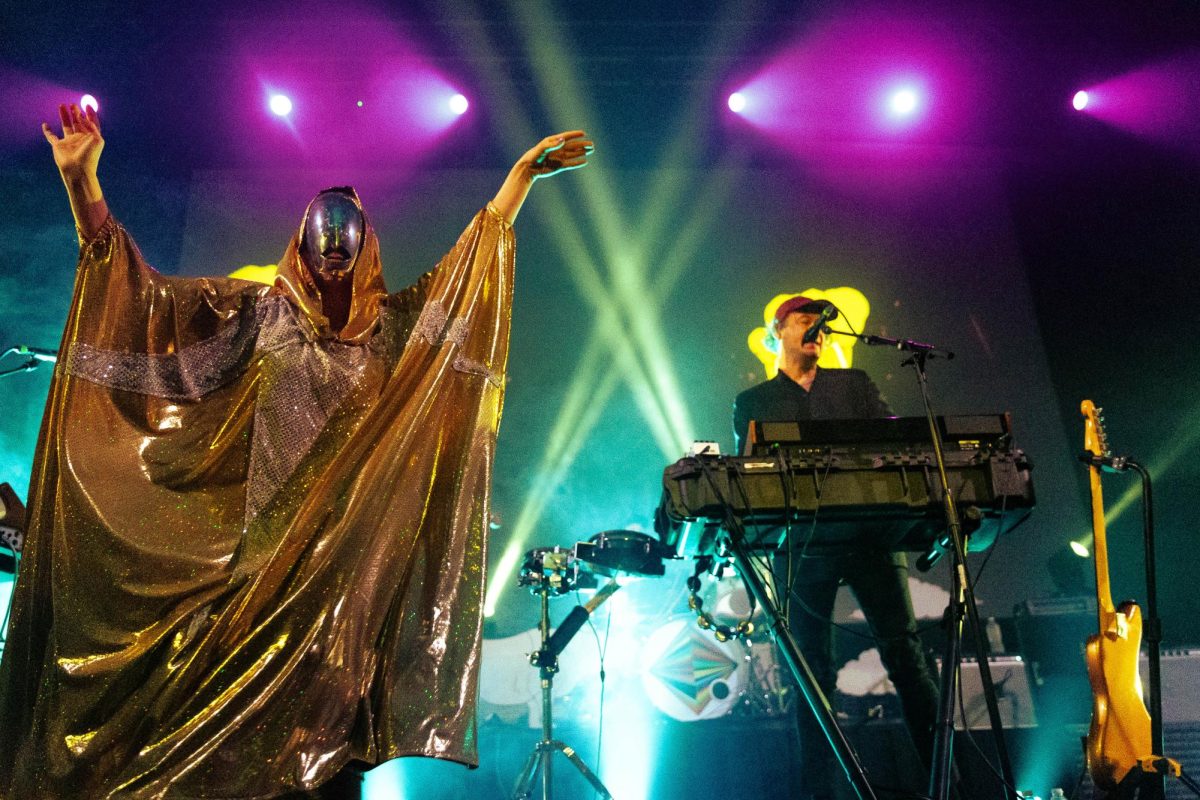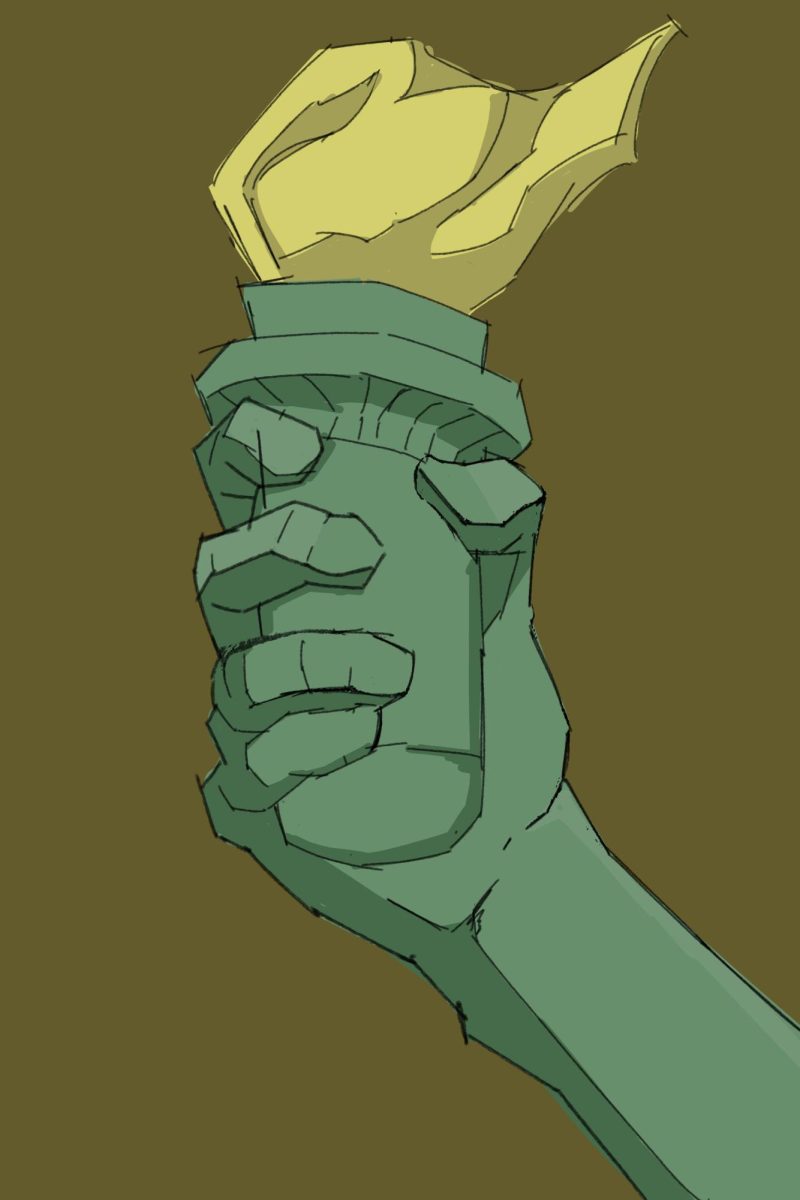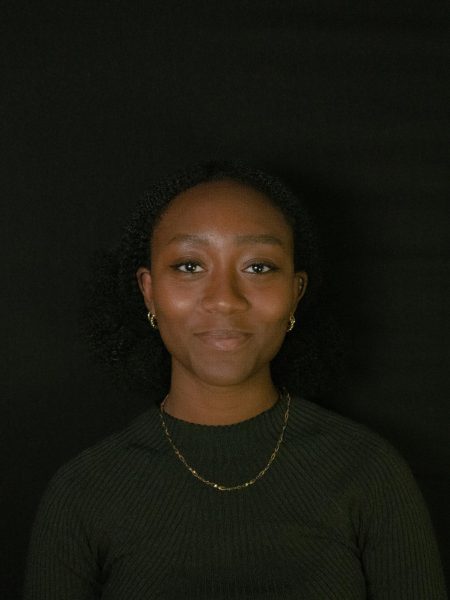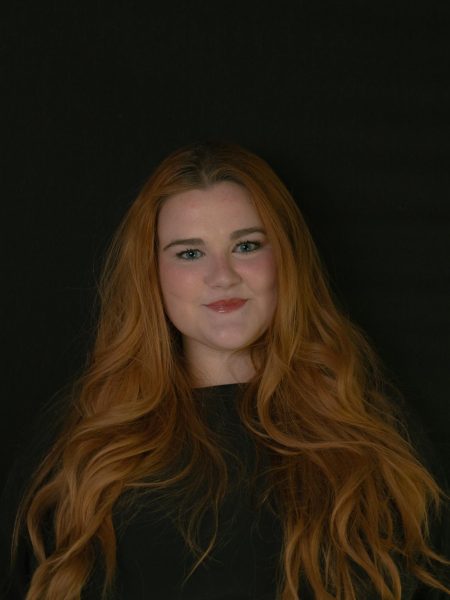

Spoiler Warning: This article contains spoilers for the movie “Priscilla.”
Teen media in the 2010s was saturated with the trope of a teenage girl catching the eye of the hottest male star at the time. Author Anna Todd’s novel “After” and the subsequent five feature-length movies were based on her online fanfiction about Harry Styles. It would take years to get through all the fanfiction written about Justin Bieber. But very few girls will ever be able to say they lived the dream of marrying their idol — and Priscilla Presley is one of them.
In Sofia Coppola’s latest movie “Priscilla,” she applies her signature female-oriented direction to explore the relationship of American rock and roll royalty through the perspective of Priscilla Presley, based on her autobiography “Elvis and Me.” As soon as the film was announced, it was met with pushback. The Elvis Estate condemned the movie, claiming it aimed to ruin Elvis’ legacy. Even the late Lisa Marie Presley, the couple’s daughter, accused the production of manipulating her mother and her story. Though Priscilla refutes and disagrees with all her family’s claims — after all, the movie is based on her account in her book — the estate consequently denied the rights to use Elvis’s discography in the film’s soundtrack. This did not stop Coppola, who once famously juxtaposed 2000s pop-punk tracks over a montage of a teenage Marie-Antoinette trying out the latest eighteenth-century fashion with her friends.
And so, the whirlwind story of fourteen-year-old Priscilla meeting twenty-four-year-old Elvis begins at an Army base in West Germany, set to the tunes of slow and sweet doo-wop and sixties pop and rock. Similar to the way “That’s What Makes You Beautiful” and “Baby” were the soundtracks to the 2010 teen girl fantasies about love, songs like “Crimson and Clover” by Tommy James and the Shondells and “Baby, I Love You” by the Ramones reflect the hazy romantic noise emitting from Elvis and Priscilla’s passionate and very public relationship.
The many contrasts of their fairytale romance are established when the couple first meets. Priscilla, sipping on a Coke at a diner, is invited by someone to Elvis’ house party and several times again later by Elvis himself to hang out alone. Coppola presents this through the back-and-forth between Priscilla’s life, filled with muted pastels and flowers, and Elvis’, surrounded by solid dark blues and reds in dim lighting made smoky from his entourage, who are smoking cigars and drinking whiskey. The classic charm of Elvis’ deep southern drawl is replaced with tense mystery as he remarks to Priscilla, “Why, you’re just a baby,” to which she replies with higher-pitched naivety, “Thank you.”
Many other people in their lives notice this difference as well, but the charm itself works to allow Priscilla to move in with Elvis at Graceland. Suddenly, Priscilla’s pastel world is magnified by his, but she as a person becomes dwarfed by it. The costume design shows her off in the latest fashions of the time, specifically sixties baby doll dresses in newer, brighter colors that complimented Elvis’ outfits, most notably baby blue. The direction shows the isolation and loneliness Priscilla begins to adopt, causing her to struggle to graduate high school, as all the other girls are jealously aware that she’s betrothed to Elvis Presley. A wave of the dim navy blues of Elvis’ world returns to the screen, though this time shone by electrifying colored bulbs around bumper cars and roller rinks as she attempts to live a normal teenage life with Elvis’ friends, who are all in their twenties.
Priscilla supports Elvis through his many endeavors, sees him away as he travels around the country for different projects, forgives his violent outbursts as he hits her with a pillow, throws a chair at her head, tries to send her back to her parents when she finds him cheating and she even takes LSD with him during his spiritual crisis. Only now, over halfway through the two-hour movie, does Elvis ask her to marry him. This realization that, as viewers, we witnessed almost a hundred minutes of what was ultimately a twisted and grossly adult coming-of-age story puts everything into perspective. And all of this happens to her from the property of Graceland, or seldom further than Memphis city limits.
The soundtrack, cinematography, costume design, direction, script and even acting are the amalgamation of Coppola’s finest film yet. The claustrophobia of young married life boxed in by elite luxury she directed in her 2006 film “Marie-Antoinette” feels like a draft to the polished product displayed in “Priscilla.” The most popular and ingenious choice was casting Jacob Elordi, who is 6’5, to play a towering Elvis over Priscilla, played by Cailee Spaeny, who is 5’1. Constantly shown and never spoken of, this visual contrast sums up the power imbalance of the relationship but also the commitment. The leading actors blend seamlessly into their characters, allowing the audience to watch the story rather than pay attention to the people playing them.
Coppola demonstrates careful restraint and thoughtfulness in all aspects of “Priscilla,” which balances drama, film and biopic. Even with the range of opinions about the age difference and dynamic of the duo, the film neither romanticizes nor criticizes Elvis and his involvement with Priscilla. Just as we see Elvis verbally and physically abuse Priscilla, we see Elvis refrain from sleeping with her while she is underage and ensures she graduates high school, agreeing to stay outside from the ceremony to not draw attention away from her big day. “Priscilla” provides a fair yet truly intimate retelling of their lives — a rare thing for biographical films.
Perhaps this is where the anger from the rest of the Presley family stems from. The justice served in the visual and scripted storytelling makes the injustice of Priscilla’s position in the relationship undeniable. No matter which way you cut it, the love was made through an abuse of power. Even with Elvis’ true intentions and connection to Priscilla, he took control of her life and finished raising her to his liking, limiting the scope of her future to the outline of his fame.
The most unforgettable shot and scene of the film is near the end. A lone Elvis stands on stage, the dark of a deafening audience the only thing before him, and his back is the only part of him visible to the silent audience in the cinema. The spotlight makes out the silhouette of his most iconic outfits as he plays a residency in the sin city of Las Vegas at night and spirals in the desolate Mojave Desert by day. Priscilla pays him a visit in a red-hot hotel room, and he forces himself onto her, to which she successfully pulls herself away. The reddish lights dim out to a cool blue as she tells him, “I’m leaving.” With his ego on his mind, Elvis asks, “Is it another man?” And nearly word-for-word to her account in her biography, Priscilla answers, “It’s not that you’ve lost me to another man; you’ve lost me to a life of my own. I’m finding myself for the first time.”
“Priscilla” is a phenomenal and sentimental adaptation of a sourly idyllic teenage dream turned reality. Paired with last year’s Baz Luhrmann’s flashy hit, “Elvis,” Coppola’s tried and true subtle perspective provides a different perspective of the legendary couple that not only rounds out the untouchable Elvis with faults and all but gives Priscilla a beautifully mature voice on screen as well.






